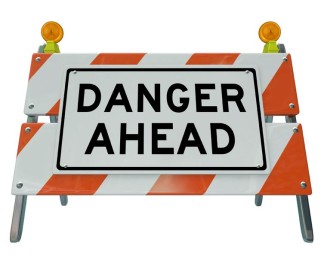 As the owner of a local business, have you heard people tell you something like this? “Hey, you should sell your stuff online. You could make so much money!” If you hear it enough times, you might start thinking that it sounds like a good idea. After all, how hard could it possibly be? It’s the same reason you probably started your business in the first place. Your friends and relatives kept telling you, “Hey, you’re so good at that, you should start a business.” And, you did. And it wasn’t that difficult, was it? All kidding aside, there are many similarities in the process of starting a new business to going beyond a standard business website and creating an online store. They both take lots of effort and expertise. Just putting up an online store will not necessarily result in a large infusion of cash showing up in your bank account
As the owner of a local business, have you heard people tell you something like this? “Hey, you should sell your stuff online. You could make so much money!” If you hear it enough times, you might start thinking that it sounds like a good idea. After all, how hard could it possibly be? It’s the same reason you probably started your business in the first place. Your friends and relatives kept telling you, “Hey, you’re so good at that, you should start a business.” And, you did. And it wasn’t that difficult, was it? All kidding aside, there are many similarities in the process of starting a new business to going beyond a standard business website and creating an online store. They both take lots of effort and expertise. Just putting up an online store will not necessarily result in a large infusion of cash showing up in your bank account
In this article, I will attempt to give you a good general understanding of what e-commerce is and is not, as well as specific things that you will need to know and account for if you decide to take the plunge into the murky, shark-infested waters of e-commerce.
What is E-Commerce?
First of all, there are a lot of cool things and features that you can have on your website that don’t necessarily make your site an e-commerce website. This can be a good thing. For example, as a service business, you could add an appointment scheduling service to your website and, because you’re not collecting any payments, you don’t have to worry about any e-commerce requirements. In fact, there are many features and services you can add to your website without having to worry about e-commerce. However, once you decide to take online payments for goods or services, you have to start considering things like SSL, https and PCI compliance.
The Technical Stuff

While you probably already have a merchant services provider to accept credit card payment for products and services in your business, you will be required to add an additional service to be able to accept payments online, as well as an online payment gateway, such as authorize.net, Paypal Payflow Pro, or any one of a myriad of options available. You will also have to make sure that the payment gateway works with your bank or current merchant services provider.
The next step is to purchase a security certificate for your website, so that you can perform encrypted transactions and work with your web services provider to get it installed on your website. There are many SSL certificate providers, but some of the most well known are verisign, Thawte, and GeoTrust. This is a complicated process that will take a lot of time to complete. Because the purpose is to validate secure transactions, you will be required to verify who you are and that you own and operate your domain name. I highly recommend that you have your web services provider help you with the purchase and installation of your secure certificate.
Once you have the payment processing and security certificate accounted for, you will need to add e-commerce functionality to your website or create an e-commerce website. You can get a custom quote from your web services provider or you can look at ready-made solutions. However, the other major factor that you have to consider is PCI Data Security Standard Compliance. This is a stringent set of regulations created by the major credit card companies to guarantee the security of online transactions, as well as to help reduce their liability if your site gets hacked and your customers’ credit card numbers are stolen.
Keep It Simple
While all of the technical stuff is something you have to work through in order to get your online store up and running, you have a business to run and you probably can’t spend the next 3-6 months learning how to create an e-commerce solution for your website. Fortunately, you CAN get your store online without having to become an expert e-commerce web developer. You can either create the online store yourself using a self-service e-commerce solutions provider or you can hire someone to create the site for you.
As far as self-service options go, there are some good providers that will provide the website, work with your merchant services provider or provide one for you and take care of PCI compliance an other issues. Some of the best self-service e-commerce services available today are Shopify, ShopLocket, and Ewcid. If you want to create an entire store, Shopify is probably the solution for you, but if you want to integrate products into your current website without having to create an entire store, ShopLocket and Ewcid allow you to embed product widgets into your own website and work with whatever website system you are currently using, such as WordPress, Joomla, Drupal and more. They also provide payment processing services and have different pricing structures, either based on how many products you have listed in your store or on actual sales. Since these are “self-service” options, once you create an account with on of these service providers, you will have to set up everything in your store, from the template and colors to tax rates, shipping options and content of emails generated by your store.
With a full-service option, you should work with a web services provider that has experience providing high-quality e-commerce websites for local businesses. When choosing a business to create your e-commerce website, you should make sure that your website service provider has e-commerce experts that will take care of the technical details, as well as continue to support your e-commerce efforts once the site has launched.
Caution! Incredible Amount of Work Ahead

Once your e-commerce website has been created, the grunt work begins. If you want to have a successful e-commerce ready website, you need to make sure that you’re ready for the ongoing work that will be required. If you’re truly serious about selling your products and services online, you will need to either allot your time every day or have an employee who is focused specifically on the online aspect of your business, because every product you sell will need to have a good title, description and image. Someone will have to respond to emails with questions about products, shipping, discounts and other issues. You will need to make sure that every product is categorized correctly. Someone will need to monitor your account for incoming orders and handle processing and fulfillment.
E-commerce can be a very profitable enhancement to your business, but you will need to ensure that you have the time and resources available to manage it or it will become a very frustrating drain on your business.




